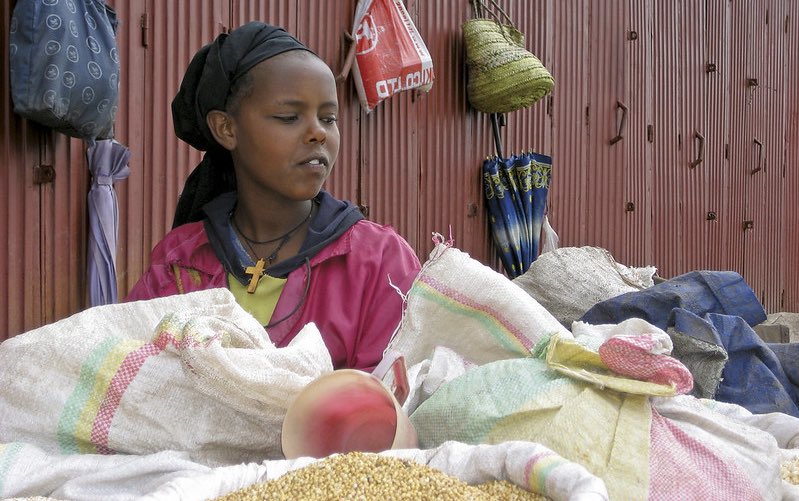As African countries experience more climate change-related shocks and related economic impacts, migration patterns are shifting as workers in affected areas move to places with better employment prospects. While climate-induced migration is a growing global phenomenon, currently only minimal data exists on temporary migration patterns in Eastern Africa.
In a paper published in World Development, we explore how individuals respond to changes in labor opportunities due to climate variability—extreme temperature and rainfall shocks—in Eastern Africa.
Interestingly, we found no evidence of the common narrative in the literature, which focuses on temporary out-migration from rural areas to adapt to climate shocks. Instead, it was the migration patterns of urban workers that were more likely to change. Our analysis shows that in urban areas, migration rates drop by 10% with a one standard deviation increase from mean temperature, and by 12% with a one standard deviation decrease in precipitation.
We combined high-resolution climate data with panel micro-data on migration, labor participation, and demographics. We then used regression analysis to assess temporary migration responses to local temperature and precipitation anomalies in four East African countries: Ethiopia, Tanzania, Malawi, and Uganda.
We focused on temporary migration because it tends to be a more common and accessible climate adaptation response for poor, uneducated households than permanent migration. The latter is rarer due to factors like a lack of liquidity to pay for travel costs, language and educational barriers to employment, attachment to the place of one’s geographic origin, and fear of land expropriation.
One explanation for our findings is that climate shocks reduce employment opportunities for urban migrants in agriculture. Our data did not include migrants’ destinations, but agriculture is East Africa’s largest employment sector, is sensitive to climate shocks, and employs many migrant workers. In some African settings, urban workers will temporarily move to rural areas during harvest periods when labor is in high demand, taking advantage of wage premiums. Our findings suggest that the climate shifts may affect such rural employment patterns and thus, urban out-migration.
While climate change certainly impacts agricultural work, for most rural workers it is easier to just stay where they are, rather than take the risk of moving to a city where employment prospects are uncertain. Notably, our findings indicate that urban labor force participation is lowest at heat and precipitation extremes, and so high urban unemployment rates may reduce incentives for rural out-migration under such conditions.
Our findings challenge the narrative that temporary out-migration serves as a safety valve during climate extremes. They indicate the need for further research on climate impacts on East African temporary migration patterns, as well as other areas of the continent. Finally, with climate shocks impacting both temporary rural work for urban laborers as well as urban employment more generally, our results suggest that urban workers in Eastern Africa are in need of greater social protection and economic support.
Valerie Mueller is an IFPRI Non-Resident Fellow and Associate Professor at the Arizona State University School of Politics and Global Studies; Francesca Edralin is an IFPRI Communications Intern.
Support for this research was provided by the IFPRI-led CGIAR Research Program on Policies, Institutions, and Markets (PIM).







